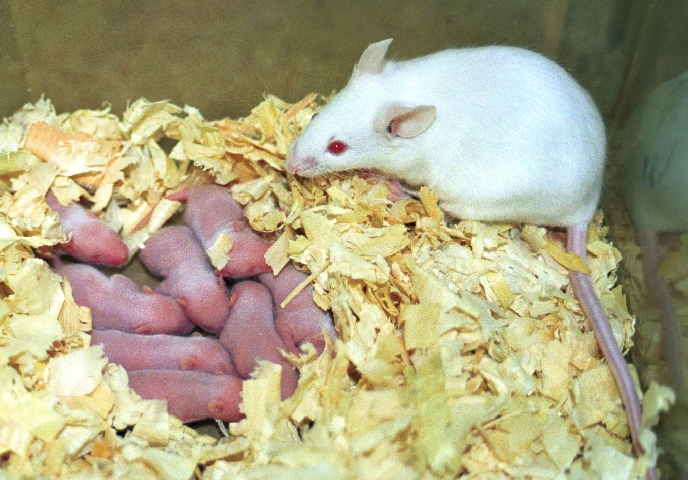 Wikimedia, Whatiguana
Wikimedia, Whatiguana
Preeclampsia is a serious complication that develops in about 5-8% of pregnant women. It is characterized by elevated blood pressure and is typically accompanied by excess protein in the urine (a sign of kidney problems). Symptoms often (but not always) return to normal after delivery of the baby.
Elabela is a recently discovered micropeptide secreted by the placenta in mammals. It is also found in fish where it plays a role in development of the heart. A recent study published in Science showed that mice that do not have this peptide develop preeclampsia. When researchers administered Elabela to mice with preeclampsia, they discovered that the micropeptide reversed hypertension and the presence of proteins in the urine. According to a quote from lead study author Dr. Bruno Reversade published in The Scientist, “We are able to rescue all these clinical symptoms by administering synthetic Ela[bela] in the knockout mice, so it’s not just that we have a new model [of preeclampsia], we have a potential therapeutic.”
